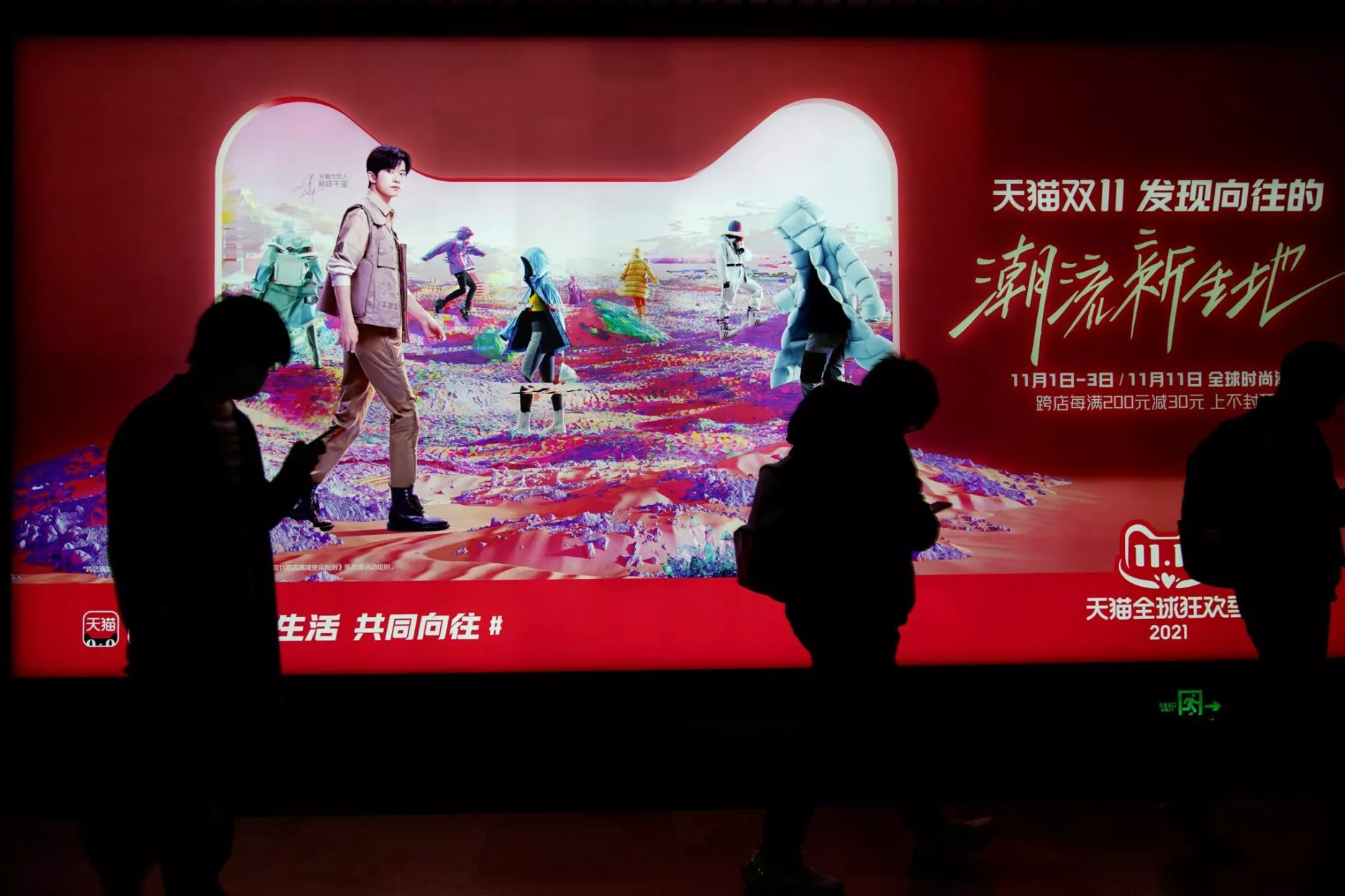You might have come across lots of fruits produced by Alibaba’s PR labours, parading its sustainability efforts done for this year’s Double 11, which coincided with COP26.
CampaignAsia wrote Double 11 was less about the discounts and that sustainability is top of mind. Other English media outlets such as Reuters, SMCP, CNBC, Forbes, China Daily covered it too. Most of them are just mindlessly copy-pasting Alibaba’s press releases, which only tells a bit of the situation.
A red herring?
To its credit, Alibaba did do several things. Already Dao Insights covered that Alibaba was using more renewable energy for its data centres, cutting 26,000 tonnes of CO2 emissions. Its logistics network Cainiao launched a box recycling scheme, and its planting trees through Ant Forest (a mini-program initiated by Alibaba on its online payment platform Alipay) with extra award points (and thus trees) during Double 11.
The 100 million RMB worth of coupons is only 0.0185% of its total 540.3 billion RMB revenue produced by Double 11.
Also, Taobao had a special page for renewable/sustainable “green” products, spearheaded by an arsenal of influencers. Plus, it gave out an “expected” value of 100 million RMB ($15.7 million) in coupons for green products. This seems stunning until you dig deeper.
The 100 million RMB worth of coupons is only 0.0185% of its total 540.3 billion RMB ($84.6 billion) revenue produced by Double 11, a number that grew by 8% compared to last year. Furthermore, the green products landing page on Taobao isn’t anywhere seen on the front page, you need to search for “绿色双11” (Green Double 11). Also, the Cainiao app shows nothing about recycling boxes (neither does the Cainiao station near my workplace).
Is Alibaba really serious about sustainability, or is it all devised in boardrooms to enable them to continue to sell as usual? Because this doesn’t look much different from Philip Morris who launched Mission Winnow for a smoke-free world, or Coca-Cola going on about “a world without waste”, yet opposing deposit bottles. These empty press releases would really hurt their businesses.
Earlier Jing Daily noticed the logical connection, by pointing out that “Still, consumerism is one of the many factors causing environmental catastrophe.” And Time Magazine also noticed how Alibaba faces criticism for its climate impact.
Not a single product page on Taobao mentions sustainability, it’s all about product features, price, shipping, sizing, but not about sustainability.
The view has also been shared by Robyn Mak in a piece for Reuters, which said, “If Alibaba is serious about sustainability, calling off the consumption overkill would send a stronger message than tweaking it around the edges.”
The English call this a red herring: a distraction, a delay.
Either way, customers don’t really care
Speaking to CampaignAsia, Tom Wan, President of Experience at an advertising company called Ogilvy China said, “Sustainability is top of mind for Chinese consumers, especially the younger generation.”
I understand it is not the intention of an advertising agency executive to produce quality journalism, but rather to sound witty. However, this is simply misleading, and a perspective of people who work in advertising and never speak to real people.

That article (and others) have never provided any credible sources to prove that sustainability is top of mind for Chinese consumers. All the examples given or quoted are initiated by Alibaba.
Additionally, not a single product page on Taobao mentions sustainability, it’s all about product features, price, shipping, sizing, but not about sustainability. And I also doubt famous social media influencers like Li Jiaqi (李佳琦) in hours of live streaming, have ever mentioned the word “sustainability”, unless they were paid to do so by Alibaba.
China has already shown it is not afraid to regulate big businesses…it can be expected that tech giants like Alibaba cannot overlook the importance of sustainability in its operation.
People in Shanghai and Suzhou talk about wanting the new iPhone, new shoes, a new winter jacket. I have heard them talk about prices. To a lesser extent, they discuss the colours of the new iPhone; they complained about the shipping time, or how difficult it was to speak to a customer care employee rather than an automated script. Everything is on their mind, except sustainability.
Like elsewhere in the world, consumers do not care much about sustainability. The success of Tesla was that it steered away from green credentials and proved it was a fun and cool car to drive. Even Nio ( 蔚来) cars are purchased not because of love for the planet, but because the cars look good, spacious and keep your family safe if you have a crash.
Sustainability is needed…
I hope the whole world becomes more sustainable, but wishing so does not make it true.
In October of this year, China’s cabinet already announced it would let the country’s carbon emissions peak by 2030, following up on aims made last year to be carbon neutral by the year 2060.
China has already shown it is not afraid to regulate big businesses, especially in the tech industry. So it can be expected that tech giants like Alibaba cannot overlook the importance of sustainability in its operation.
Real change is coming for sure. Yet in China, much like the rest of the world, it’s unlikely to come from consumers or companies themselves.
Read more:











